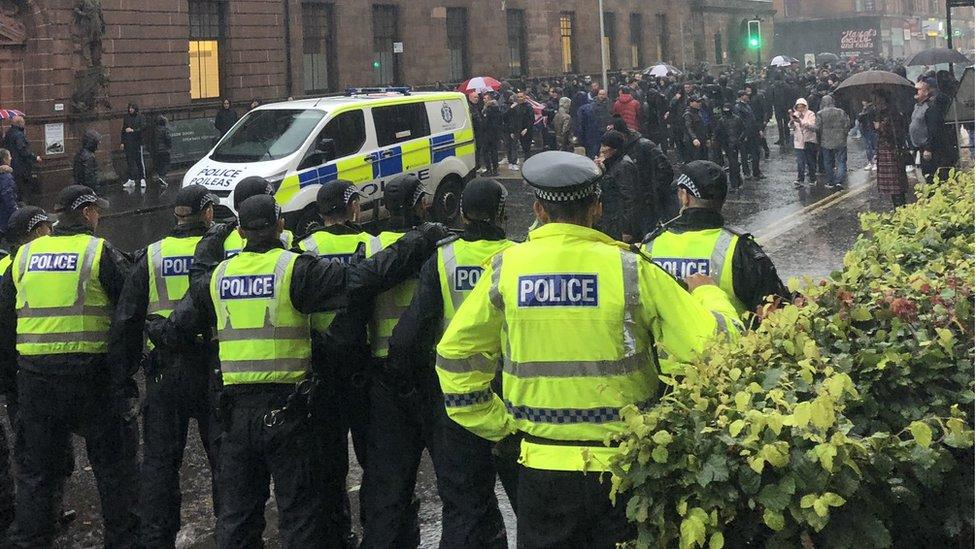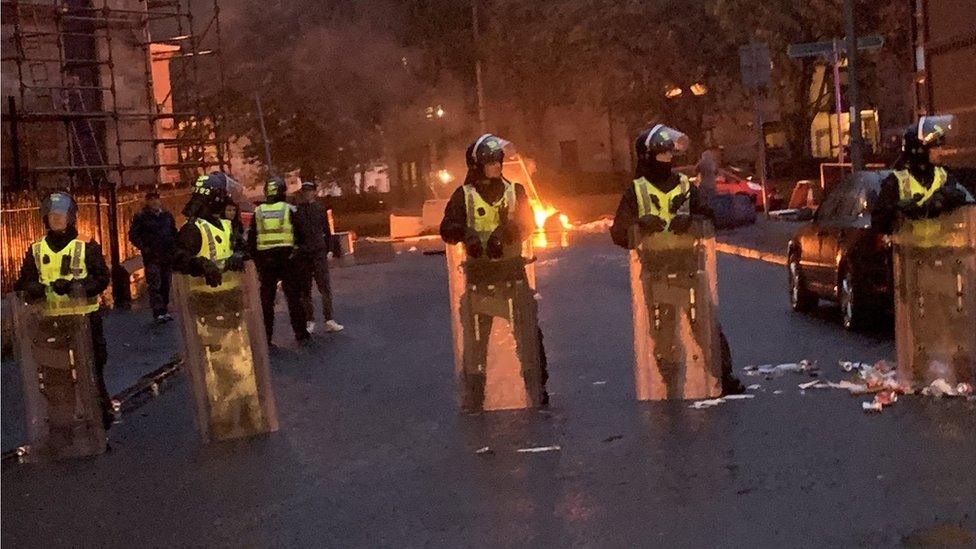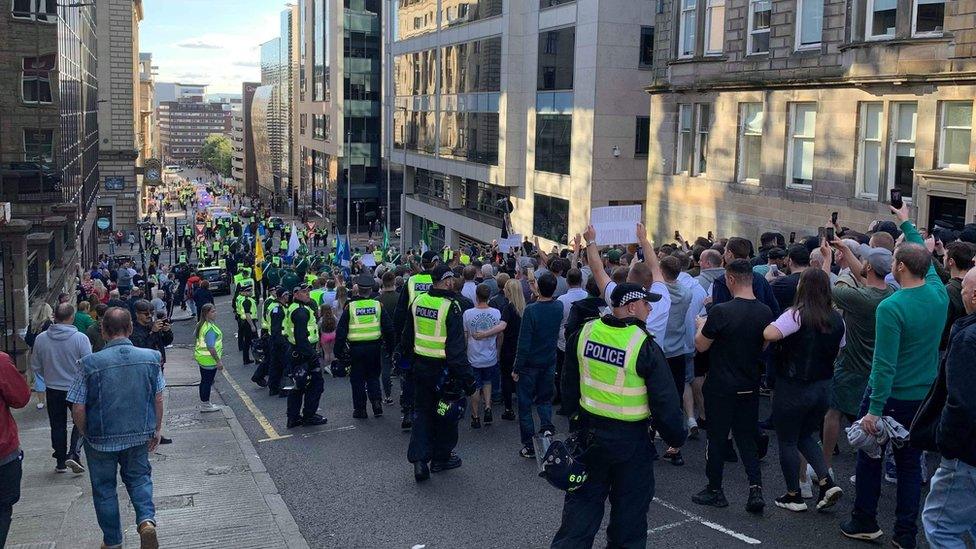Council 'has no power' to impose temporary ban on Glasgow marches
- Published

There has been a huge police presence at recent parades
Glasgow City Council has said it cannot go ahead with a temporary ban on loyalist and republican marches because there is currently "no legal basis".
It had been exploring the idea following recent sectarian disorder.
Council chiefs said the city was "sick and tired" after weeks of violence and clashes during marches.
Police Scotland's chief constable Iain Livingstone has also said policing them is unsustainable and presents a "significant challenge".
The local authority's leader, Susan Aitken, instructed her teams to explore the idea of a moratorium on processions to "lower the temperature."
She had previously vowed to "push the law" in order to protect the public following sectarian disorder.
But, in a paper due to go before councillors on Thursday, external, officials say the legal advice is that - under current laws - there is no legal basis to impose such a ban.
There will also be a discussion about setting up a cross-party group to find a long-term solution.

There were violent clashes in Govan
A council spokesman said: "A report setting out proposals for a cross-party group, requested at a meeting of the council on September 12, will go before members on Thursday.
"The paper also confirms that the council has received legal advice that, under current legislation, there is no legal basis on which the council could impose a moratorium on processions."
It comes after the Scottish Police Authority board heard that, on one day, 600 officers were deployed to the city centre to cover parades.
The operation on 7 September - when one officer was hurt by a pyrotechnic - cost about £176,000.
It came after violent clashes in Govan the previous weekend.
Officers have arrested 14 people in connection with a variety of offences during recent parades.
- Published25 September 2019

- Published21 September 2019

- Published14 September 2019

- Published2 September 2019
